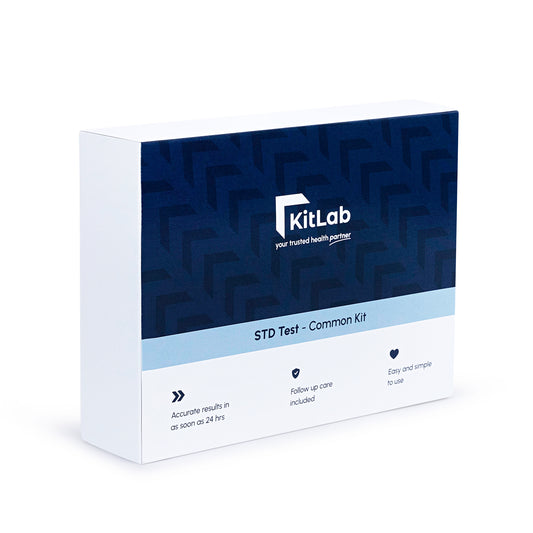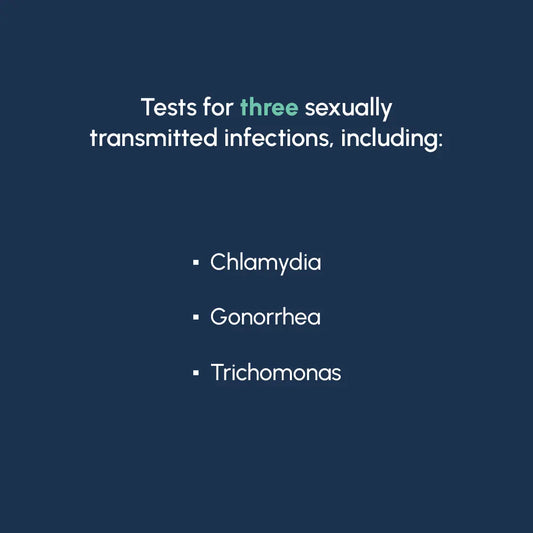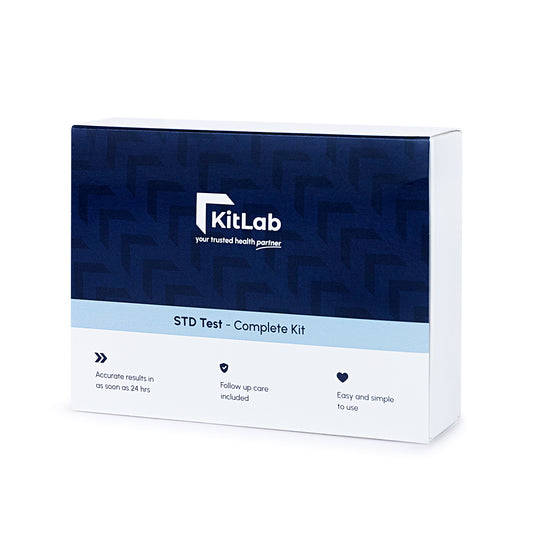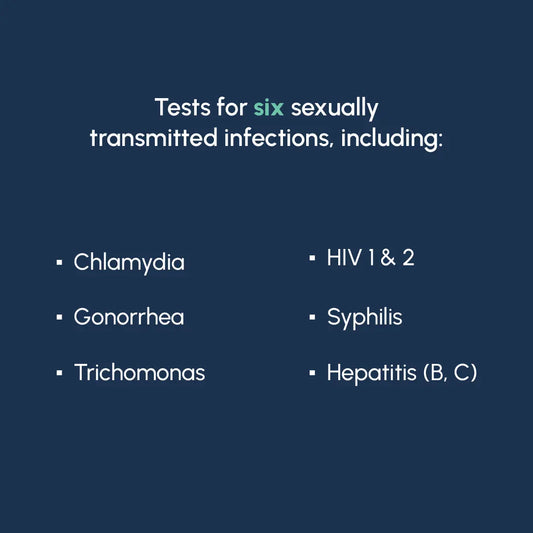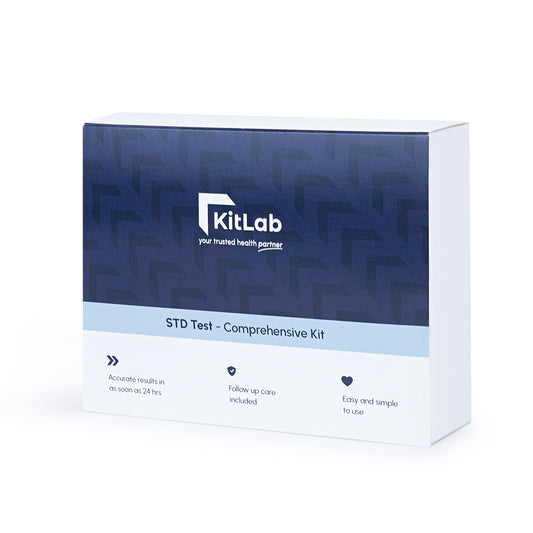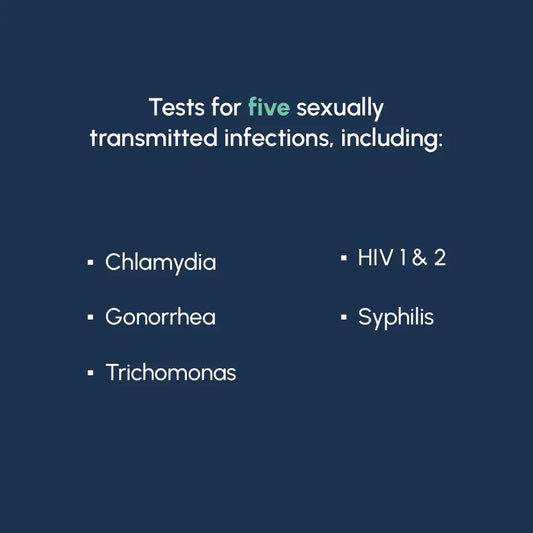The Quiet Crisis at the Pharmacy Shelf

How to meet rising STI test demand with discretion, compliance, and care.
It starts with a quiet question in a shopping aisle. A college student, anxious after an unprotected encounter, walks into a pharmacy hoping to find something discreet and fast. She sees shelves of pregnancy tests, ovulation kits, even allergy panels — but no STI tests. Flustered, she leaves empty-handed. That missed moment isn’t just a lost sale — it’s a public health gap.
Across the United States, sexually transmitted infections (STIs) are rising at an alarming rate. And yet, on the shelves of many pharmacies, you’d never know it. While pregnancy tests, ovulation kits, and at-home COVID diagnostics are widely available, at-home STI testing remains notably absent from most retail aisles. This gap isn’t just about public health — it’s a missed opportunity in preventive care and retail strategy.
The Centers for Disease Control and Prevention (CDC) reports a sustained rise in STIs across the country. Chlamydia, gonorrhea, and syphilis rates have reached their highest levels in decades, particularly among younger adults and underserved populations.
Retail pharmacies are uniquely positioned to lead the next wave of responsible, consumer-directed sexual health. The infrastructure is already in place: trust, traffic, regulated standards, and OTC familiarity. And today’s at-home STI tests — like KitLab’s — are no longer complicated, stigmatized, or out of step with compliance. They are private, regulated, medically backed, and increasingly in demand.
For independent and regional pharmacy chains, this is a defining moment — a chance to outpace national brands by championing accessible, preventive sexual health care where it's needed most.
**A Health Crisis Hiding in Plain Sight

And yet, many of those most at risk are avoiding clinics due to cost, transportation barriers, or stigma. Research shows that 70% of young adults prefer at-home STI testing to in-clinic appointments, and 91% would use a free home test if offered. The interest is real — but the in-store access is not.
What’s Holding Pharmacies Back?
Pharmacy leaders often cite familiar concerns: limited shelf space, consumer discomfort, regulatory complexity, or low expected turnover. But those barriers are fading quickly:
- Shelf economics are shifting. Combo test kits, such as KitLab’s, increase average order value and carry competitive margins.
- Operational friction is low. Modern kits require no devices, no pharmacist handling, and no returns. Prepaid mailers and app-based onboarding handle the entire workflow.
- Consumer behavior has changed. Today’s shoppers already buy COVID tests, UTI kits, and vitamin regimens. STI testing is the next logical step in establishing a routine of self-care.
Why Retail Is Ready Now
Major chains are already moving — and not just online. In 2022, CVS launched its own-branded STI Test Kit, now available in some CVS stores and online. It’s featured in the company’s “Personal Intimacy” section in select HealthHub-format stores and represents one of the first at-home STI test kits carried under a national pharmacy brand.
Other chains are following suit: Walgreens, Walmart, Kroger, and Target have introduced STI test kits through their online pharmacies and in select store locations. Discreet packaging, prepaid lab mailers, and telehealth integration are quickly becoming category norms.
More importantly, retail pharmacies remain one of the most trusted and accessible healthcare touchpoints in the U.S. Consumers are familiar with the aisles. They understand the packaging. And they value the ability to get tested discreetly — without waiting rooms or paperwork.
Yet despite this progress, many pharmacies — notably smaller chains and independent retailers — remain hesitant to stock at-home STI tests on their shelves. This reluctance often stems from a combination of outdated assumptions, perceived stigma, and concern about operational or reputational complexity. However, many of these concerns do not reflect the reality of today’s at-home STI testing solutions.
Myths and Realities: What’s Really True About At-Home STI Testing
Myth #1: “There’s not enough demand for STI kits in-store.”
Reality: STI rates are at a decades-high level in the U.S., and research shows that 70% of young people prefer to test at home, while 39% say they’d prefer to pick up a kit from a pharmacy. Interest is both significant and retail-friendly.
Myth #2: “STI kits are too sensitive to display on shelves.”
Reality: Modern packaging — like KitLab’s — is wellness-oriented, discreet, and clearly aligned with other self-care products, such as UTI tests and pregnancy kits. Shelf visibility is about education, not embarrassment.
Myth #3: “These tests are too complicated or regulated for retail.”
Reality: Kits like KitLab’s are fully compliant with CLIA/CAP lab standards and require no special handling or storage by pharmacists. Users simply follow instructions, send their sample in a prepaid mailer, and receive secure results online.
Myth #4: “There’s no clinical follow-up or liability support.”
Reality: KitLab includes optional telehealth consultations across all 50 U.S. states and prescription treatment pathways — so patients are never left without next steps. Our approach also reassures retailers that customers will receive legitimate medical guidance.
Myth #5: “It’s a low-turn, low-margin category.”
Reality: Combo STI kits (many tests in one) have higher average order values than many OTC SKUs and generate strong margins with minimal operational burden. They also attract new customers seeking private, trusted care.
For pharmacies looking to expand their role in preventive care while driving profitable new categories, it’s time to rethink the shelf—and who it’s missing.

KitLab’s Model: Designed for the Shelf and Beyond
KitLab’s approach is purpose-built for this moment:
- CLIA- and CAP-certified labs handle processing.
- Discreet, OTC-ready packaging fits comfortably in self-care aisles.
- App-based guided collection ensures privacy, accuracy, and confidence.
- Built-in telehealth and Rx access mean patients are never left without next steps.
It’s not just a test. It’s a complete care pathway, from sample to treatment.
A New Standard in Preventive Care
Pharmacies have played a vital role in every recent wave of decentralized healthcare, including flu shots, COVID-19 tests, and screening for chronic conditions. STI testing belongs on that same shelf — literally and figuratively.
By offering at-home STI tests, pharmacies aren’t just adding a product. They’re expanding access, reducing care disparities, and filling a gap that digital health companies—as well as other pharmacies—have been slow to address.
It’s time to bring that care back to the most accessible front line in American healthcare: your local pharmacy.
Want to learn how KitLab can help you build a responsible, revenue-ready STI testing program?
Contact a KitLab professional by sending an email to sales@kitlab.com.

